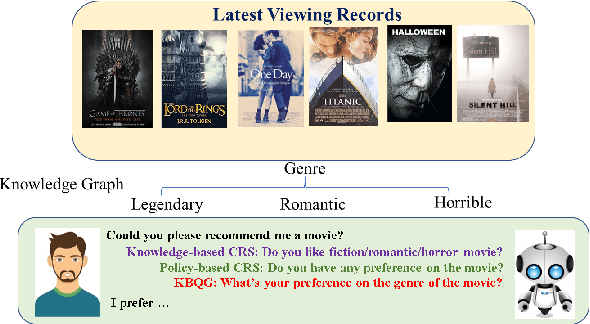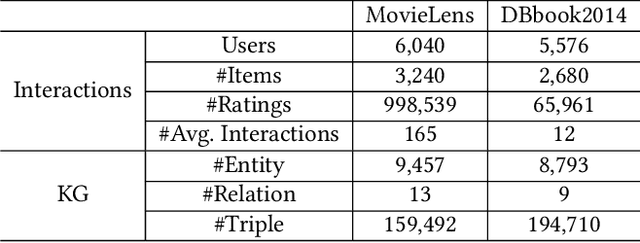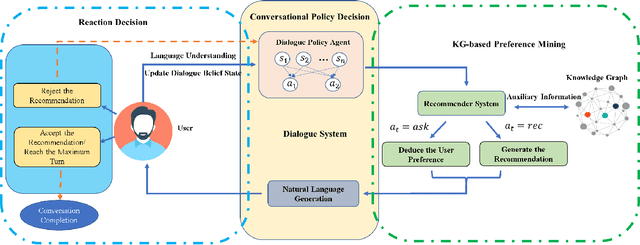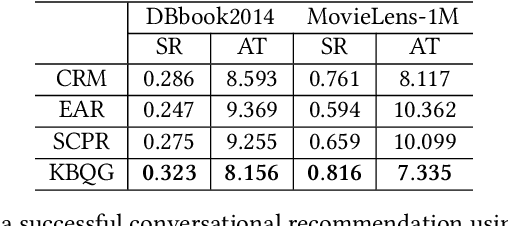Learning to Ask Appropriate Questions in Conversational Recommendation
Paper and Code
May 11, 2021



Conversational recommender systems (CRSs) have revolutionized the conventional recommendation paradigm by embracing dialogue agents to dynamically capture the fine-grained user preference. In a typical conversational recommendation scenario, a CRS firstly generates questions to let the user clarify her/his demands and then makes suitable recommendations. Hence, the ability to generate suitable clarifying questions is the key to timely tracing users' dynamic preferences and achieving successful recommendations. However, existing CRSs fall short in asking high-quality questions because: (1) system-generated responses heavily depends on the performance of the dialogue policy agent, which has to be trained with huge conversation corpus to cover all circumstances; and (2) current CRSs cannot fully utilize the learned latent user profiles for generating appropriate and personalized responses. To mitigate these issues, we propose the Knowledge-Based Question Generation System (KBQG), a novel framework for conversational recommendation. Distinct from previous conversational recommender systems, KBQG models a user's preference in a finer granularity by identifying the most relevant relations from a structured knowledge graph (KG). Conditioned on the varied importance of different relations, the generated clarifying questions could perform better in impelling users to provide more details on their preferences. Finially, accurate recommendations can be generated in fewer conversational turns. Furthermore, the proposed KBQG outperforms all baselines in our experiments on two real-world datasets.
 Add to Chrome
Add to Chrome Add to Firefox
Add to Firefox Add to Edge
Add to Edge